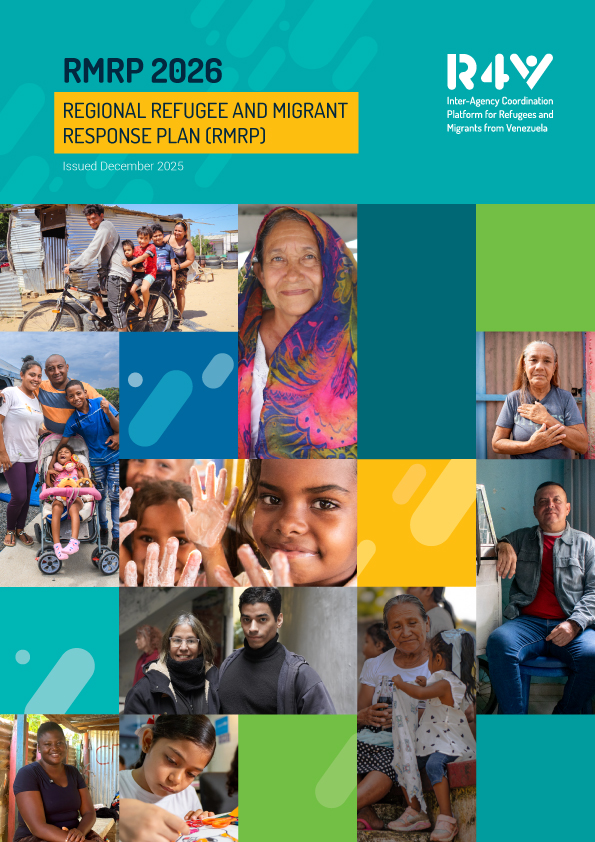The Regional Refugee and Migrant Response Plan (RMRP) 2026 will maintain its commitment to addressing urgent humanitarian needs while fostering long-term integration and ensuring protection for migrants, refugees and host communities across 17 countries in Latin America and the Caribbean.
The response will concentrate on those most in need—Venezuelan refugees and migrants, people in-transit from diverse nationalities, and vulnerable host-community members whose solidarity remains essential to the regional effort. The delivery of this comprehensive response will bring together 152 appealing partner organizations, including UN agencies, international and national NGOs, civil society, faith-based groups, and academia. The response also includes 34 migrant- and refugee-led organizations, which represent nearly one-fifth of all appealing partners and reaffirm the importance of localization and community leadership.
To carry out the 2026 regional response plan, partners are seeking USD 763 million to support 1.2 million refugees and migrants with immediate assistance in areas related to integration, protection, and access to essential services such as housing, food, water, and education.

KEY RMRP FIGURES BY COUNTRY
Where do we stand?
@UNICEF/Sendai Zea
Key figures By national and sub-regional platforms

WHAT’S THE RMRP?
@IOM/Ana Paula Lima
Since its establishment in 2018, the Regional Inter-Agency Coordination Platform for Refugees and Migrants from Venezuela (referred to as “R4V”) has been instrumental in supporting an increasing number of migrants and refugees from Venezuela and, over time, increasingly also from other countries. The R4V Platform serves as an inclusive and accountable forum, guiding and monitoring the operational response under a Regional Refugee and Migrant Response Plan (RMRP). The RMRP includes immediate humanitarian and protection assistance for refugees and migrants in vulnerable situations, and promotes their inclusion into state-led planning efforts and national social protection systems, encouraging self-reliance through income-generation and livelihoods programmes, and helps build sustainable capacities of national and local actors to provide basic services.
FINANCIAL REQUIREMENTS BY SECTOR AND YEAR
Detailed information on each appealing organization’s activities, including their geographic and thematic focuses, targeted individuals (disaggregated by age/gender/population group and geographic administrative level 1), and financial requirements, as well as updated information on their implementation status, is available on the Data Page of R4V.info, and on the R4V Humanitarian Data Exchange (HDX), underscoring the common commitment towards transparency and accountability of R4V partners.
THE REGIONAL RESPONSE for 2026
@DRC/Katerine Lara
FINANCIAL REQUIREMENTS BY SECTOR AND YEAR
Detailed information on each appealing organization’s activities, including their geographic and thematic focuses, targeted individuals (disaggregated by age/gender/population group and geographic administrative level 1), and financial requirements, as well as updated information on their implementation status, is available on the Data Page of R4V.info, and on the R4V Humanitarian Data Exchange (HDX), underscoring the common commitment towards transparency and accountability of R4V partners.
RMRP 2026 PARTNER ORGANIZATIONS
@UNICEF/Katarine Almeida

